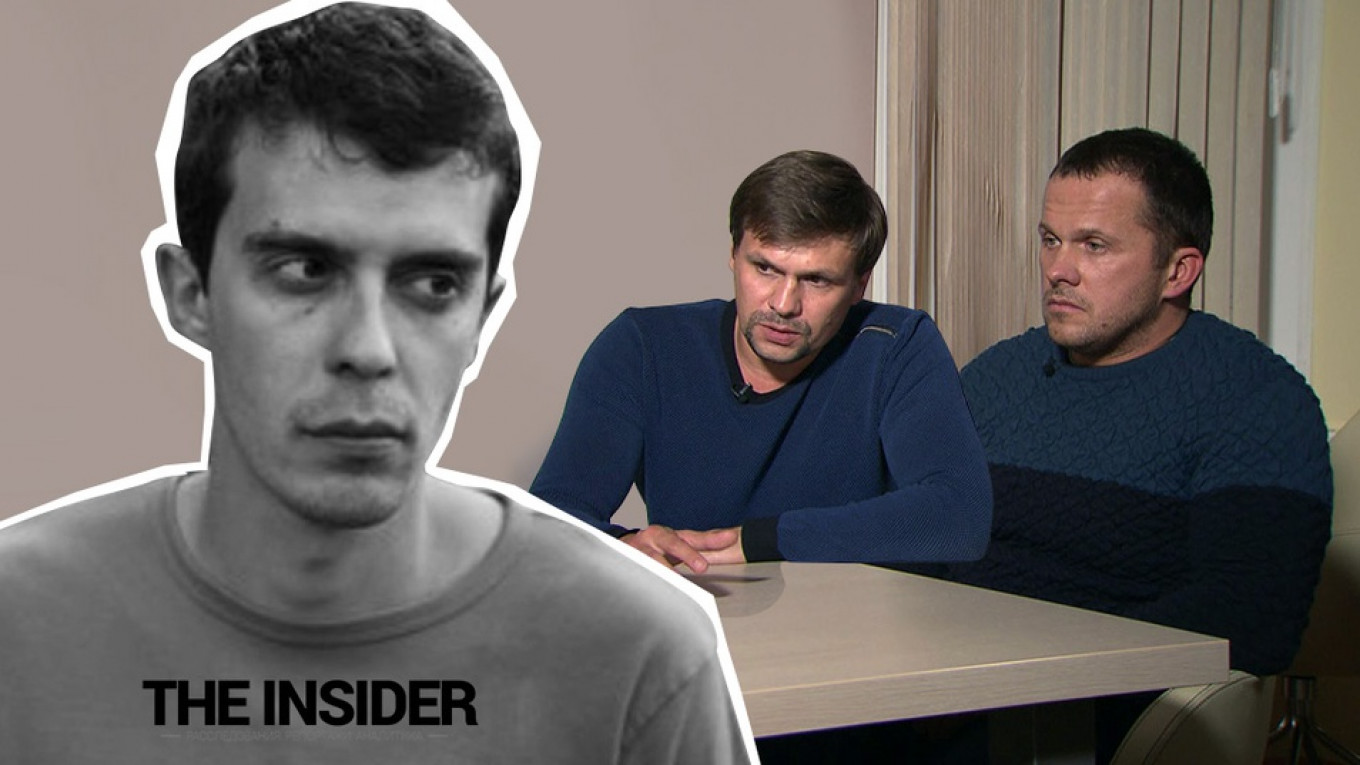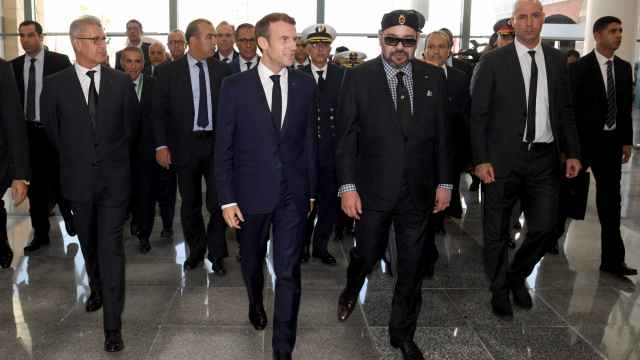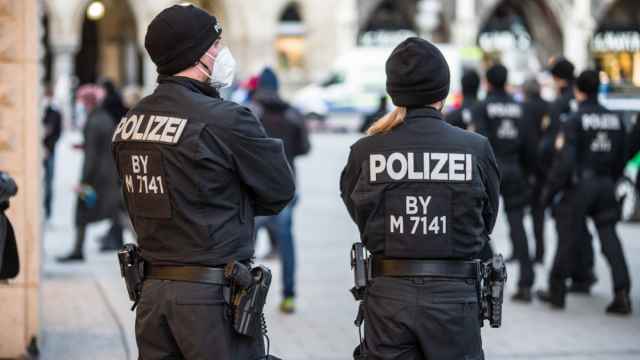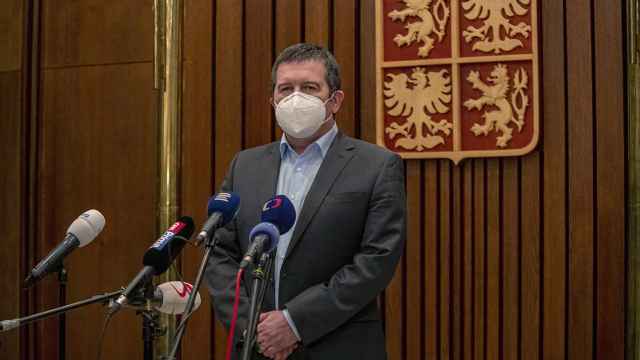Six months after the former spy Sergei Skripal and his daughter Yulia were found slumped on a bench in Salisbury, the British investigative collective Bellingcat and its Russian partner The Insider made public new details that shed light on the incident.
Their joint report published Sept. 26 provided evidence that Ruslan Boshirov, a suspect in the poisoning, was actually Anatoly Chepiga, a colonel in Russia’s military intelligence agency, the GRU. A second report in October would identify another suspect as GRU doctor Alexander Mishkin.
As the revelations made headlines around the world, Western media outlets including the BBC, CNN and the Guardian rushed to profile Bellingcat, the latter of which described the investigators headed by Eliot Higgins as “fighters on the front line against Russia’s attacks.”
Less airtime was given to the reporting by Russian journalists on the ground. Yet it was their contribution which helped challenge the Kremlin’s narrative by confirming the initial reports and unearthing new details.
The Skripal case has served to remind readers that, against the odds, there is still an appetite in Russia for investigative reporting. It has also begged the question of how long the Kremlin will allow it to continue.
Among the Russian news sites, The Insider played a lead role. The investigative outfit, which was founded in 2013 by journalist and activist Roman Dobrokhotov, has collaborated with Bellingcat since 2017 and joined forces again to reveal the identities of the Skripal poisoning suspects.
Even though their joint report won The Insider few mentions abroad, Dobrokhotov says there has been “unprecedented national exposure” at home, particularly compared to previous collaborations, including on the MH17 passenger airliner downed over eastern Ukraine in 2014.
“Listen, I really didn’t mind that Bellingcat was cited more often than we were by the international media,” Dobrokhotov told The Moscow Times. “Our main goal was to spread our reports in Russia and we succeeded in doing that.”
“Maybe more than half of those Russians talking about our investigations don’t know we wrote them, but at least they’re talking about it.”
The domino effect
Following the joint report by Bellingcat and The Insider in September, other Russian journalists quickly joined the fray. Hours after it was revealed that Boshirov was a GRU colonel who grew up in the small Siberian town of Berezovka, journalists from the Kommersant business daily tracked down locals there who recognized him as Chepiga.
Smaller Russian sites have also left their mark. In October, the St. Petersburg-based news site Fontanka published flight records that identified a third suspect in the Skripal case. And Conflict Intelligence Team, a group of bloggers who work mainly on the conflicts in Ukraine and Syria, published in early October a photocopy of Chepiga’s driving license, the ID photo corroborating his real identity.
Aric Toler, lead researcher at Bellingcat, says the investigations by Russian journalists have been an important part of how the Skripal story has unfolded. “If these journalists went to the villages where Chepiga and Mishkin are from and just heard crickets without anyone knowing who these guys are, it really shoots some holes in our research.”
For Dobrokhotov, having other Russian journalists pursue the story has diminished his fears of a targeted Kremlin response. “When Kommersant first published their own research I was relieved. It meant the censorship bubble was broken,” he told The Moscow Times.
Investigation cynicism
Under President Vladimir Putin, independent media has come under increased scrutiny. In 2014, new legislation limited foreign ownership of Russian news organizations, some of which have been subject to takeovers, with Kremlin-friendly editors replacing independent voices.
Partly as a result, investigative journalism in Russia is often met with skepticism, says Russian columnist Oleg Kashin. “There is a common belief in Russia that investigative journalists operate on outside orders,” he says.
Nevertheless, Dobrokhotov says the Skripal case may change that. In response to Skripal revelations, Putin’s spokesman Dmitry Peskov said the Kremlin would no longer publicly discuss what Peskov described as “media discussions.” Dobrokhotov believes that the Kremlin’s silence spoke volumes: whereas previously it would go on the offensive, this time it stayed silent, hoping the story would blow over.
“The authorities were completely taken by surprise by the number of investigations coming out of Russia simultaneously,” he said. “Even Putin’s usual supporters are questioning the Kremlin’s Skripal narrative. They see that our research just make more sense.”
Censorship rules
That doesn't mean media environment has fundamentally improved, however. Investigative journalism in Russia, which ranks 148th in the 2018 Press Freedom Index, is as under as much pressure as ever.
Last month, Pyotr Verzilov, a well-known activist and co-founder of the opposition Mediazona news website was poisoned in Moscow. And just last week, a journalist at the Novaya Gazeta investigative newspaper had a severed goat’s head delivered to their offices in an apparent warning against publishing a report into state-sponsored violence.
When contacted by The Moscow Times, the Kommersant journalists who worked on the Skripal investigation alluded to this difficult climate, saying that they were “uncomfortable speaking about their investigation.”
According to Kashin, while websites were able to publish investigations on Skripal, the Kremlin imposes different rules for print media. He pointed to the fact that Kommersant didn't include its investigation on Chepiga in its print issue.
“The Kremlin expects the same high standard of censorship from print as they do from state-run television,” Kashin says. “One possible explanation here is that Putin actually reads Kommersant’s print edition.”
Dobrokhotov acknowledged that ever since the Skripal investigations, The Insider has “come on the Kremlin’s radar” (he worries his site could be blocked in Russia).
In a move that illustrates the Kremlin’s attitude towards embarrassing investigations, a Duma deputy two weeks ago asked the country’s prosecutors to investigate whether The Insider broke the country's privacy laws by releasing the GRU officers’ passport details as part of their investigations.
However, Dobrokhotov believes the fact that many other outlets followed suit acts as a “safety buffer.” “The Kremlin is just shell-shocked and doesn’t know what to do,” he says. “It’s harder for them to go on and close them all.”
A Message from The Moscow Times:
Dear readers,
We are facing unprecedented challenges. Russia's Prosecutor General's Office has designated The Moscow Times as an "undesirable" organization, criminalizing our work and putting our staff at risk of prosecution. This follows our earlier unjust labeling as a "foreign agent."
These actions are direct attempts to silence independent journalism in Russia. The authorities claim our work "discredits the decisions of the Russian leadership." We see things differently: we strive to provide accurate, unbiased reporting on Russia.
We, the journalists of The Moscow Times, refuse to be silenced. But to continue our work, we need your help.
Your support, no matter how small, makes a world of difference. If you can, please support us monthly starting from just $2. It's quick to set up, and every contribution makes a significant impact.
By supporting The Moscow Times, you're defending open, independent journalism in the face of repression. Thank you for standing with us.
Remind me later.







